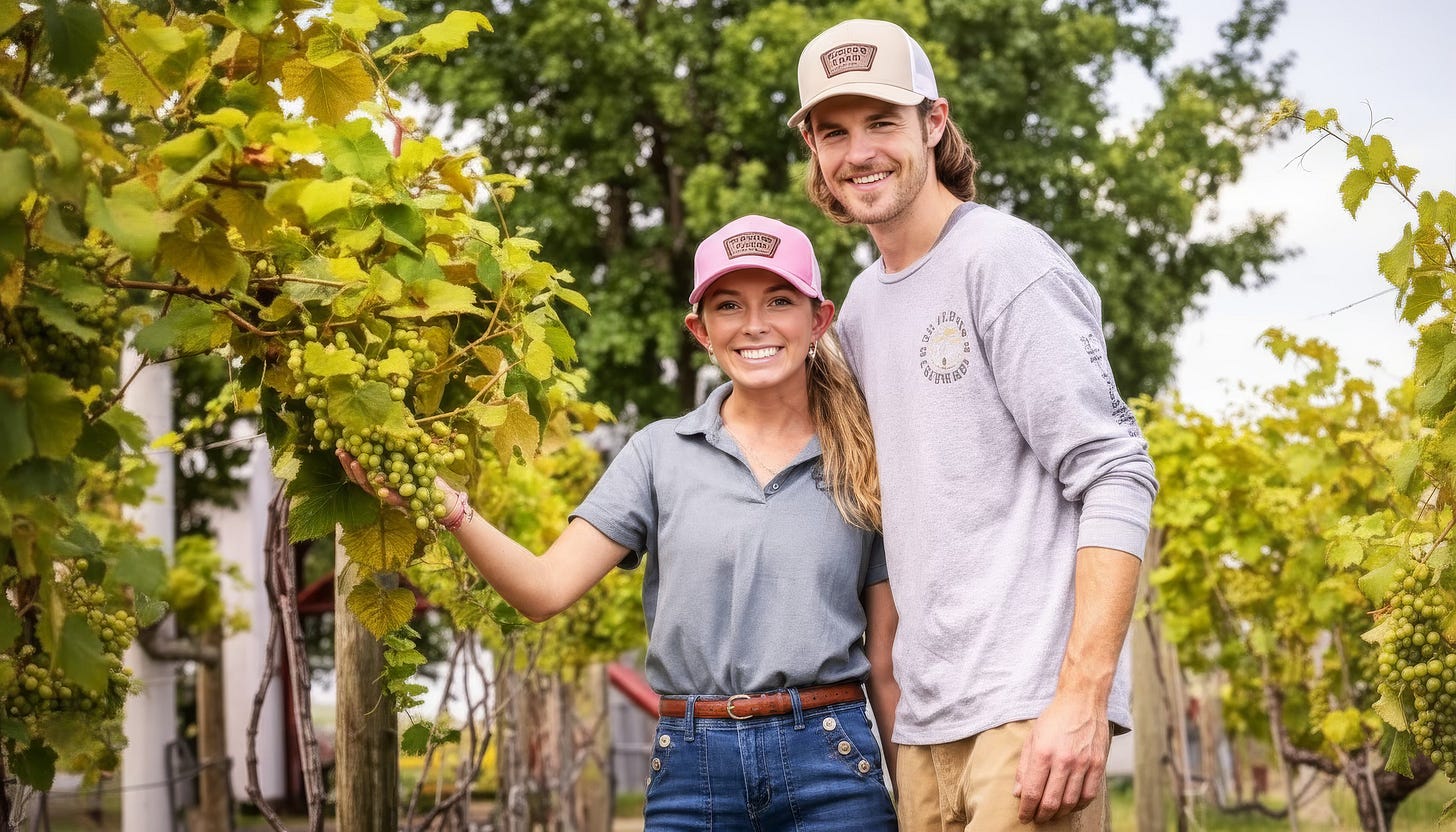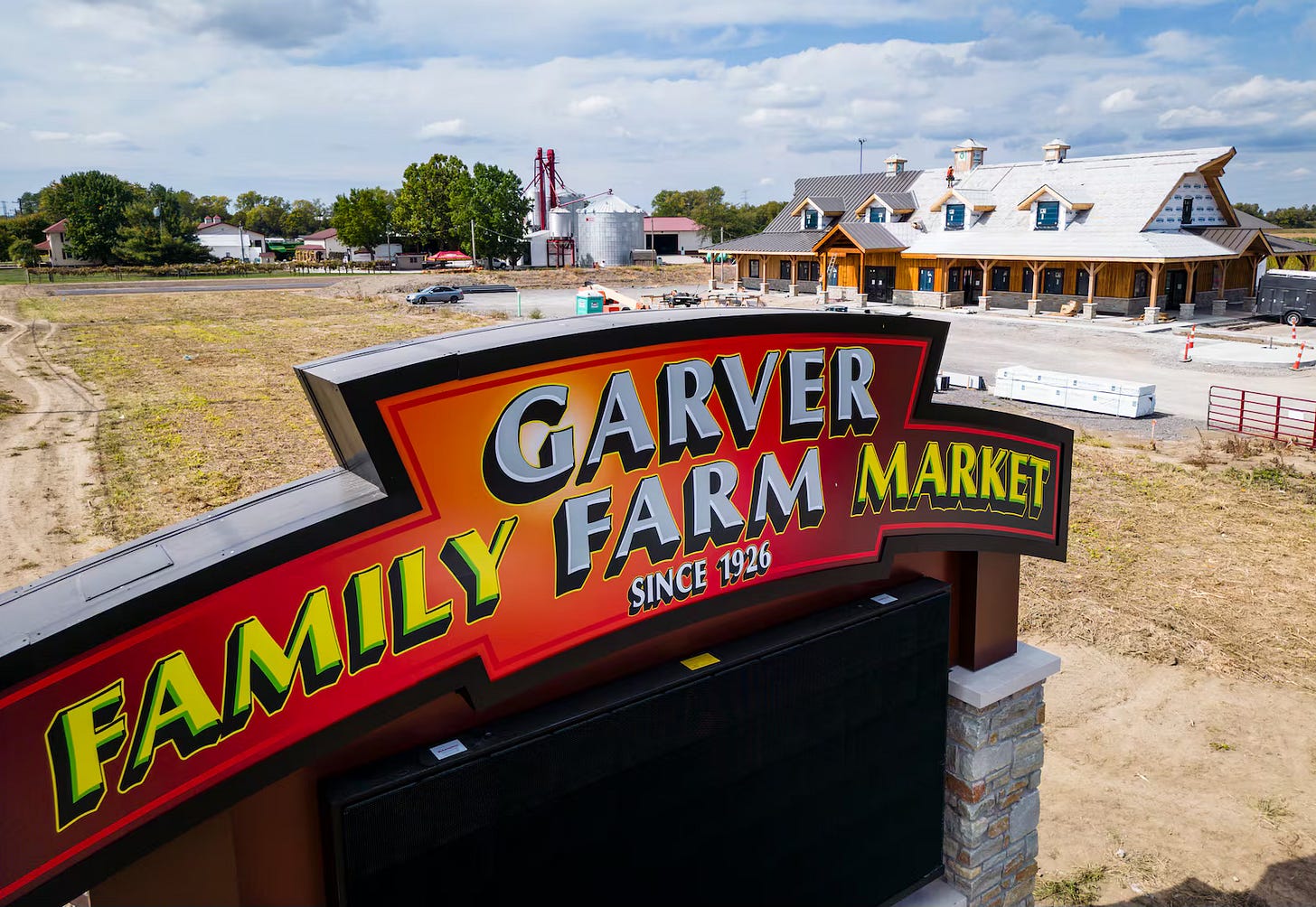Ohio’s War on Ingenuity: When “Food Freedom” Meets the Zoning Board
When zoning boards and health codes treat farm ingenuity like a crime, Ohio’s small growers fight back — defending the right to wash lettuce, pour wine, and make a living from the land.
So you plant a few acres, grow some lettuce, bottle your own wine, bake bread in your kitchen, and dream of turning the family farm into something more than a property-tax liability.
Then — bang! — a government vehicle with a county seal pulls up the drive. “We’re just here to protect the public,” they say, citation in hand.
Welcome to Ohio, where “innovation” on the farm apparently means a hearing before the zoning board.
The Pattern: When Growing Food Becomes a Regulated Act
Across the Buckeye State, local governments have developed a peculiar habit of treating small farms like rogue corporations. Their weapon of choice? Zoning and health codes written for industrial kitchens and Walmart-sized stores, now applied to the corner pumpkin patch.
Let’s tour a few headline cases.
The Farm on Central — Carlisle, Warren County
The Farm on Central calls itself a private farm cooperative, a little community of members who pick up local eggs, greens, and baked goods.
To the rest of us, that’s called “neighbors buying food.”
But the Warren County Health District saw something more sinister — “licensable activity.” Inspectors cited “washed, cut, and packaged lettuces,” dips, and sourdough bread. For that, the department obtained a temporary restraining order.
When did a salad mix become contraband?
The state’s logic is that the moment a farmer washes lettuce or sells a loaf of bread, the farm transforms into a retail food establishment, and under Ohio Revised Code § 3717, that means licensed sinks, stainless steel walls, and government oversight — “whether public or private.”
Translation: even if you call it a private membership association, the state still claims jurisdiction.
And that’s the constitutional rub. If two informed adults agree on a private sale, why should the government referee? Food Freedom advocates argue that private commerce is an act of consent, not a public hazard. Yet in Ohio, washing lettuce is “processing,” and processing requires permission.
Cincy Urban Farm — Sharonville, Hamilton County
Drive a few counties south and you meet Cincy Urban Farm, a small operation that set up a self-service stand in the city of Sharonville. For years, locals dropped in, grabbed fresh produce, and left a few dollars in the honesty box — the very definition of community agriculture.
Then one day, the city ordered the stand to shut down within forty-eight hours, claiming it was “retail in a non-retail zone.”
The farmer appealed, arguing the stand sold only what he grew — a textbook farm market under Ohio law. But zoning staff said it “looked like a store.” Shelves, signage, regular hours — apparently those things make food too accessible.
In a state that glorifies entrepreneurship, the irony is painful: farmers are punished for being too good at marketing.
Seven Mile Winery — Wayne Township, Butler County
Next stop, Seven Mile Winery, where Steve and Stephanie Mortenson decided to bottle their own grapes and build a barn for tastings and weddings. Ohio law — backed by the 2011 Supreme Court decision Terry v. Sperry — explicitly says that “vinting and selling wine on land any part of which is used for viticulture” counts as agriculture.
Open-and-shut, right?
Not quite. Neighbors complained, the township issued a Stop Work Order, and the couple spent years proving their vineyard was indeed a farm. Whether they formally “won” is buried in BZA files, but the principle remains: the moment a farmer adds hospitality, regulators call it commercial.
Apparently “agritourism” only counts if tourists stay home.
Garver Family Farm Market — Middletown, Butler County
And finally, the freshest chapter: Garver Family Farm Market.
This century-old farm built a gorgeous new market — produce, vineyard wine, deli, bakery. A shining example of what rural revitalization could look like.
Then the county claimed Garver had outgrown agriculture. The deli and bakery, they said, turned it into a “commercial business.” Garver counters that everything sold supports the farm, that half the income still comes from what they grow, and that the market keeps the farm solvent in a fast-developing region where property taxes keep climbing.
Garver is exactly the kind of multi-stream model ag schools now teach — vertical integration, value-added enterprise. Yet local zoning codes still treat those words like rebellion.
Why Ohio Keeps Tripping Over Its Own Farmers
Let’s be fair. Ohio’s zoning and health codes weren’t written by villains; they were written in the 1950s to keep farms from turning into slaughterhouses or nightclubs. But the modern small farm isn’t a row of corn — it’s a micro-businessfighting urban sprawl, inflation, and $10,000 property-tax bills.
Butler County’s development boom has pushed farmland values — and taxes — through the roof. The only way a family farm survives is through ingenuity: a farm store, a bakery, a bed-and-breakfast, agritourism weekends. Yet every time a farmer tries, another permit, fee, or hearing pops up.
Meanwhile, megafarms and multinational processors — with corporate lawyers and lobbyists — sail through the same agencies untouched.
Agritourism: The Bridge Between Farm and Future
Agritourism was supposed to save rural America. In Great Britain after World War II, the government actively promoted it. Farmers opened their barns to visitors, sold cheese and jam, hosted teas, and showed children where food came from. It rebuilt trust and diversified income.
In Ohio, we use the same word but choke it with conditions. Under the 2016 agritourism statute, a farm can host visitors only if it stays “agriculturally related.” Heaven forbid you serve lunch or hold a wedding — that’s “commercial.”
But agritourism is commercial; that’s the point. It brings a premium to on-farm products by connecting people to land and story. It turns customers into advocates. And it might just keep a generation of farmers from selling out to subdivisions.
Private Membership Organizations and the Right to Choose
At the fringes of this debate are the Private Membership Associations — farmers who say, “We’ll sell only to members; therefore, we’re private.”
The law says otherwise. Under Ohio’s health code, even private clubs fall under inspection “whether public or private.” Regulators argue illness doesn’t stop at the gate. True enough — but neither does economic collapse.
Food Freedom activists counter that adults should be allowed to contract for food the same way they can for skydiving or surgery. Freedom involves risk. The right to farm, they say, should include the right to feed willing neighbors without bureaucratic permission slips.
The Bigger Picture — Nationwide
Ohio isn’t alone.
In Maine, food-sovereignty ordinances let towns opt out of state inspection for direct farm-to-consumer sales.
Wyoming’s Food Freedom Act legalized most direct, unlicensed farm food sales — and not one major outbreak followed.
In Colorado, zoning boards are hammering small greenhouses and farm-stand operations under “public safety.”
Everywhere, the small producer is treated like a hazard while industrial food processors, who actually cause most recalls, operate under blanket federal approval.
The Moral of the Story — and the Call to Action
Farming is not just an occupation; it’s the oldest form of entrepreneurship. It’s science, art, and hospitality wrapped in mud and sweat. When a farmer washes lettuce or pours wine for guests, that’s not a crime — it’s connection.
Ohio’s laws may be well-intentioned, but they’ve drifted far from common sense. Food doesn’t come from a code book; it comes from people who love the land. And if we keep regulating those people out of existence, one zoning hearing at a time, we’ll all be poorer for it.
Garver Family Farm Market, The Farm on Central, Cincy Urban Farm, Seven Mile Winery — these aren’t outlaws. They’re innovators trying to stay afloat in an economy that punishes self-reliance.
Maybe the real “public good” isn’t another layer of licensing. Maybe it’s making sure the next generation still has farms left to license at all.





